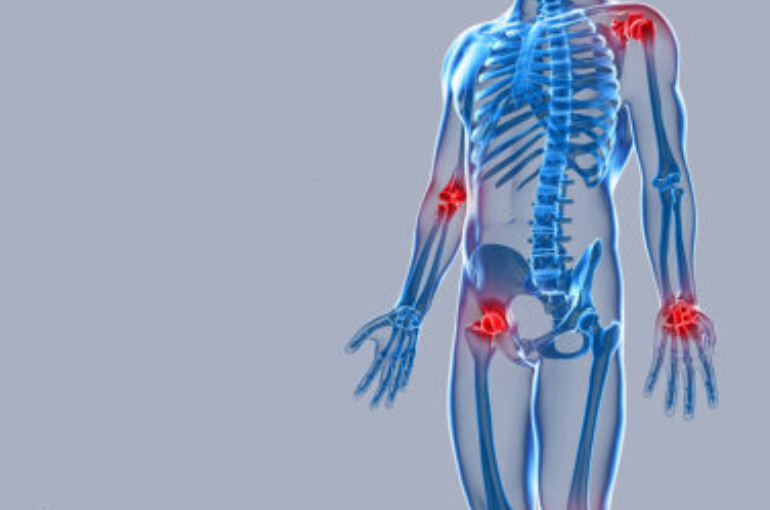What is Psoriatic Arthritis?

People who have psoriasis may also develop psoriatic arthritis. Sometimes the joint pain can begin before any skin lesions appear, making it more difficult to diagnose.
If you have psoriasis then you're familiar with dry, flaky skin, but what if you also notice joint pain and swelling? People who have psoriasis may also develop psoriatic arthritis. Sometimes the joint pain can begin before any skin lesions appear, making it more difficult to diagnose.
What Causes Psoriatic Arthritis?
The exact cause of psoriatic arthritis is not known, but it's linked to problems with the body's infection-fighting system (immune system). Other factors include:- Family history - People who have psoriatic arthritis often have relatives with either psoriasis or arthritis or both.
- Certain infections - These include streptococcal infections and HIV.
- Injury - This includes an injury to the skin or a joint.
What Are the Symptoms?
- Pain, tenderness, and swelling in any joint, including the spine
- Joint or back stiffness, especially in the morning
- Patches of rough skin that are usually red underneath, scaly, and white or silver on top
- Fingernail problems, such as pitted or crumbly nails, or nails that are detached from the nail bed
- Pain and swelling where muscles attach to bones
- Swelling of fingers or toes
- Eye redness or inflammation
How Is Psoriatic Arthritis Treated?
While there is no cure for psoriatic arthritis, it's important to control the symptoms to prevent damage to your joints. Medications are an important part of treatment and include:- Prescription or over-the-counter pain medicines to help reduce swelling and pain
- Prescription medicines to limit the effect of the immune system, reduce or prevent joint damage (e.g., methotrexate, injectable biologic medicines, skin patches)
- Steroid injections into affected joints to help relieve symptoms
- Topical medicines for rough skin patches to relieve discomfort and dryness
- Regular exercise to improve flexibility and strength
- Physical therapy to help relieve pain and improve flexibility
- Heat packs to help relieve pain and swelling
- Shoe inserts to improve foot and ankle stability and help with foot pain
Note: The content of this blog is for informational purposes only. It is not intended for use as diagnosis or treatment of a health problem or as a substitute for the professional consultation of a physician or qualified health care provider. If you have specific questions or concerns regarding a health or medical condition, contact your physician or a licensed health care professional.

